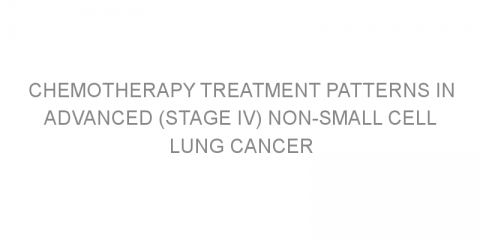In a nutshell The authors aimed to evaluate the pattern of chemotherapy treatments and associated survival in advanced (stage IV) non-small cell lung cancer (NSCLC) patients. Some background In advanced NSCLC (stage IV), cancer spreads from lungs to different parts of the body. This is called metastasis. In this stage, chemotherapy...
Read MoreLung cancer Posts on Medivizor
Benefits of collaborative team care at different stages of non-small cell lung cancer
In a nutshell The authors aimed to assess whether collaboration of different healthcare professionals can help treat non-small cell lung cancer (NSCLC) patients better and improve overall survival. Some background Treatment of NSCLC is decided based on the stage of the cancer. In the early stage (I/II), surgery and chemotherapy are the...
Read MorePreventive radiation therapy to the head in small cell lung cancer: A review
In a nutshell In this review, the authors aimed to assess the beneficial role of preventive radiation therapy to the head in small cell lung cancer (SCLC). Some background SCLC accounts for 13% of all lung cancers. It tends to grow and spread quickly to other parts of the body, often to the brain (brain metastasis). The available treatment...
Read MoreErlotinib with pemetrexed and cisplatin for lung cancer that has spread to the brain
In a nutshell The objective of this study was to evaluate the effect of erlotinib (Tarceva) in combination with pemetrexed (Alimta) and cisplatin (Platinol) in lung cancer that had spread into the brain (brain metastases). Some background Lung adenocarcinoma is the cancer of glandular cells of lungs. It is a common type of non-small cell lung...
Read MoreCrizotinib in patients with advanced non-small cell lung cancer
In a nutshell The authors aimed to analyze the safety and effectiveness of crizotinib (Xalkori) in Chinese patients with advanced non-small cell lung cancer (NSCLC). Some background NSCLC is the most common type of lung cancer. In some patients with NSCLC, a gene called ALK is turned on (ALK positive) which leads to incorrect interaction of ALK...
Read MoreManagement of non-small cell lung cancer in elderly patients
In a nutshell The objective of this review was to provide advice on treatment options for different stages of non-small cell lung cancer (NSCLC) in elderly patients. Some background NSCLC tends to occur more in older age. The average age of onset of NSCLC is 70 years. Treatment of elderly patients can be complicated with other health concerns, so...
Read MoreRacotumomab vaccine : a maintenance therapy in advanced non-small cell lung cancer
In a nutshell The objective of this research was to analyze the safety and effectiveness of racotumomab (Vaxira) vaccine in advanced non-small cell lung cancer (NSCLC). Some background In the advanced stage (IIB/ IV) of NSCLC, cancer may spread throughout lungs, to adjacent lymph nodes (tiny, bean-shaped organs that help fight infections) and to...
Read MoreCan we estimate the benefit of vandetanib and docetaxel in advanced non-small cell lung cancer?
In a nutshell The aim of this study was to determine whether the benefit from combination therapy of vandetanib (Caprelsa) and docetaxel (Taxotere) could be linked to specific biological substances in non-small cell lung cancer (NSCLC) patients. Some background In advanced stage (IIB/IV) NSCLC, cancer may spread throughout lungs and to other...
Read MoreLinifanib with carboplatin and paclitaxel in nonsquamous non-small cell lung cancer
In a nutshell The objective of this study was to determine whether addition of linifanib to a combination of carboplatin (Paraplatin) and paclitaxel (Taxol) could benefit advanced nonsquamous non-small cell lung cancer (NSCLC) patients. Some background Nonsquamous NSCLC is a type of lung cancer where the cancer starts in cells other than...
Read MoreCan tecemotide benefit inoperable non-small cell lung cancer patients?
In a nutshell The authors aimed to reanalyze data from phase 3 clinical trial of tecemotide in non-small cell lung cancer (NSCLC) patients. Some background NSCLC is the most common type of lung cancer. Standard treatments for inoperable NSCLC (cancer that cannot be removed surgically) are chemotherapy, radiation or a combination of both...
Read MoreTreatment of small cell lung cancer
In a nutshell In this review, the authors explored different options to treat small cell lung cancer (SCLC) and the challenges associated with them. Some background SCLC accounts to 15-20% of all lung cancer. For treatment purposes, SCLC is divided into two stages (phases): limited disease (LD) and extensive disease (ED). In LD, cancer is usually...
Read MorePositive Thinking and Cancer-Myth-Making
Called the “Emperor of All Maladies.” there’s little doubt that a cancer diagnosis throws life completely out of control. Unfortunately, this chaos creates vulnerabilities that can and have been exploited. It is tempting to believe the idea that if you control your thoughts and make them positive, you can control cancer. However...
Read More












